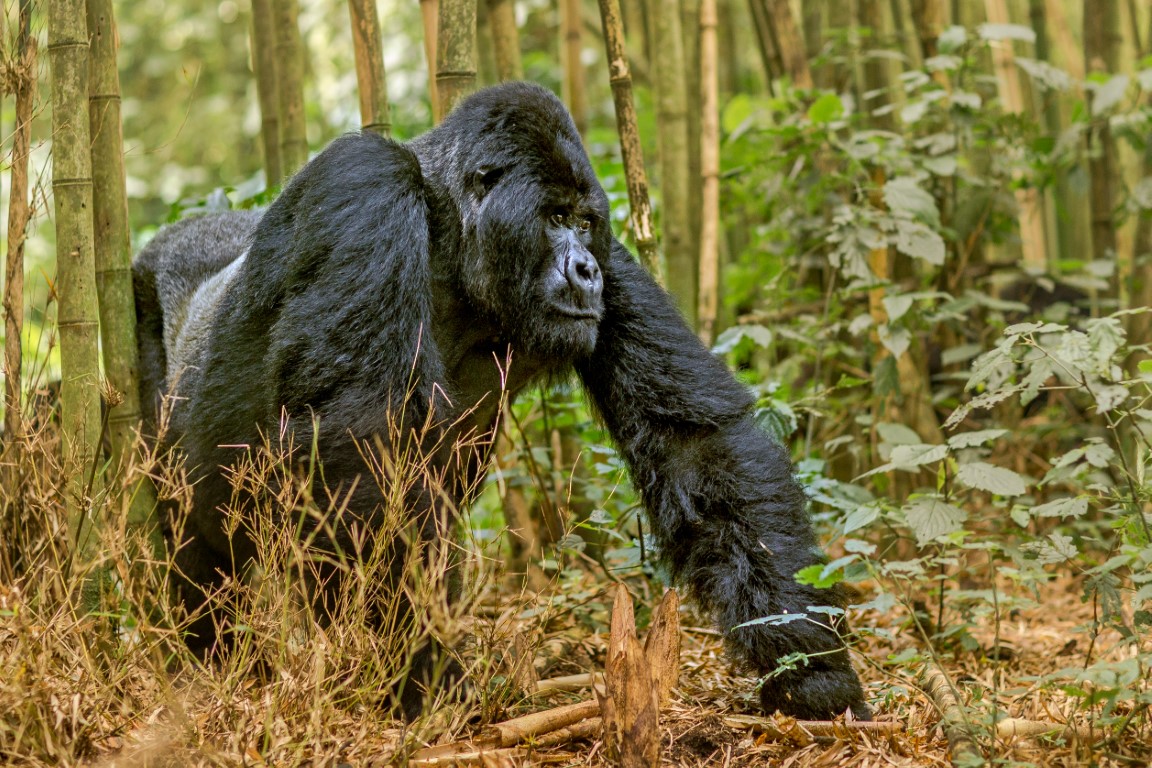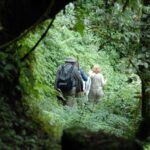Important information before Gorilla Trekking
Embarking on a gorilla trekking safari is an exciting and potentially life-changing experience. To ensure a safe and enjoyable journey, being well-prepared is crucial.
Permit and Booking:
Obtain a gorilla trekking permit in advance. Permits are limited, and it’s advisable to book well in advance through the appropriate authorities in the country where you plan to trek (i.e.: Rwanda and Uganda). Arranging all your travel needs with our travel expert, including gorilla permits while booking your travel package removes unnecessary worry from you.
Health Precautions:
-Vaccinations: Check and update routine vaccinations and consider vaccinations for specific regions. Consult a healthcare professional for additional vaccinations like Yellow Fever and any required medications.
– Fitness Level: Gorilla trekking can involve hiking in challenging terrain. Ensure you are physically fit and inform your guide of any health concerns.
Packing Essentials:
– Sturdy Hiking Boots: Wear comfortable, waterproof, and sturdy hiking boots with good ankle support.
– Appropriate Clothing: Dress in layers, considering the varying altitudes and temperatures. Long sleeves and pants are recommended to protect against vegetation and insects.
– Rain Gear & Gloves: Carry a waterproof jacket or poncho, as rain is common in gorilla habitats. Remember to bring a waterproof bag with you to protect your valuables from
– Daypack: Bring a small daypack for essentials such as a reusable bottle full of water, snacks, a packed lunch, a camera, and personal items.
– Guides and Rangers: Follow the guidance of experienced local guides and park rangers who are familiar with the terrain and the behavior of the gorillas.
– Group Size: Gorilla trekking groups are usually small to minimize disturbance to the gorillas—respect group size limits.
– Hiring a porter: Taking porters when gorilla trekking is not only common but also highly recommended for several reasons. Porters play a crucial role in enhancing the overall experience and contributing to the sustainability of gorilla tourism. Here are some reasons why you might want to consider hiring a porter:
Assistance with Gear: Porters can carry your backpack, camera equipment, water, and other personal items, allowing you to focus on the trek without the physical strain of carrying a heavy load.
Getting a helping hand: For those who may have limited physical fitness or health concerns, having a porter can make the trek more manageable. It ensures that individuals of varying fitness levels can still participate in the experience.
Empowering Local Communities: Hiring local porters provides them with employment opportunities, contributing to the economic well-being of the community. This is an essential aspect of responsible and sustainable tourism.
Cultural Exchange: Porters often come from local communities and can share valuable insights into the culture, flora, and fauna of the region. Engaging with porters can add a cultural dimension to your trekking experience.
Safety and Comfort: Porters are familiar with the terrain and can assist you in navigating challenging sections of the trek. Additionally, having a porter ensures that you are well-prepared for any unexpected changes in weather or trail conditions. When hiring porters, it’s essential to ensure fair compensation for their services. This not only benefits the local community but also encourages a positive and sustainable relationship between tourists and the communities surrounding gorilla habitats. Before your trek, inquire about the availability of porters and their rates, and consider this as an investment in both your own experience and the local community’s well-being.
Rules and Etiquette:
– Maintain Distance: Follow the specified distance regulations to minimize the risk of disease transmission between humans and gorillas. The minimum distance to maintain is 7 meters. It is good to follow the park guide’s instructions in the whole process to
– Quiet and Calm: Keep noise levels low and avoid sudden movements. Gorillas are wild animals, and calm behavior is essential for positive interaction.
Photography:
– Camera Gear: Bring a good camera with a zoom lens for capturing clear photos without disturbing the gorillas.
– No Flash Photography: Flash photography is usually prohibited as it can startle the gorillas.
Weather and Climate:
Understand the climate of the specific gorilla habitat you will be visiting to pack accordingly.
Cultural Sensitivity:
– Respect Local Communities: Be respectful of local communities and their customs. Seek permission before taking photographs of people or villages.
Permit Fees and Regulations:
– Understand Regulations: Familiarize yourself with the specific regulations of the park or reserve you are visiting, including permit fees, trekking duration, and rules.
Travel Insurance:
– Comprehensive Coverage: Obtain travel insurance that covers medical emergencies, trip cancellations, and evacuation.
Transportation:
– Arrival and Departure: Plan your arrival and departure times well with our travel expert to allow for any unforeseen delays.
Environmental Responsibility:
Adhere to the principles of “Leave No Trace” to minimize your impact on the environment.



